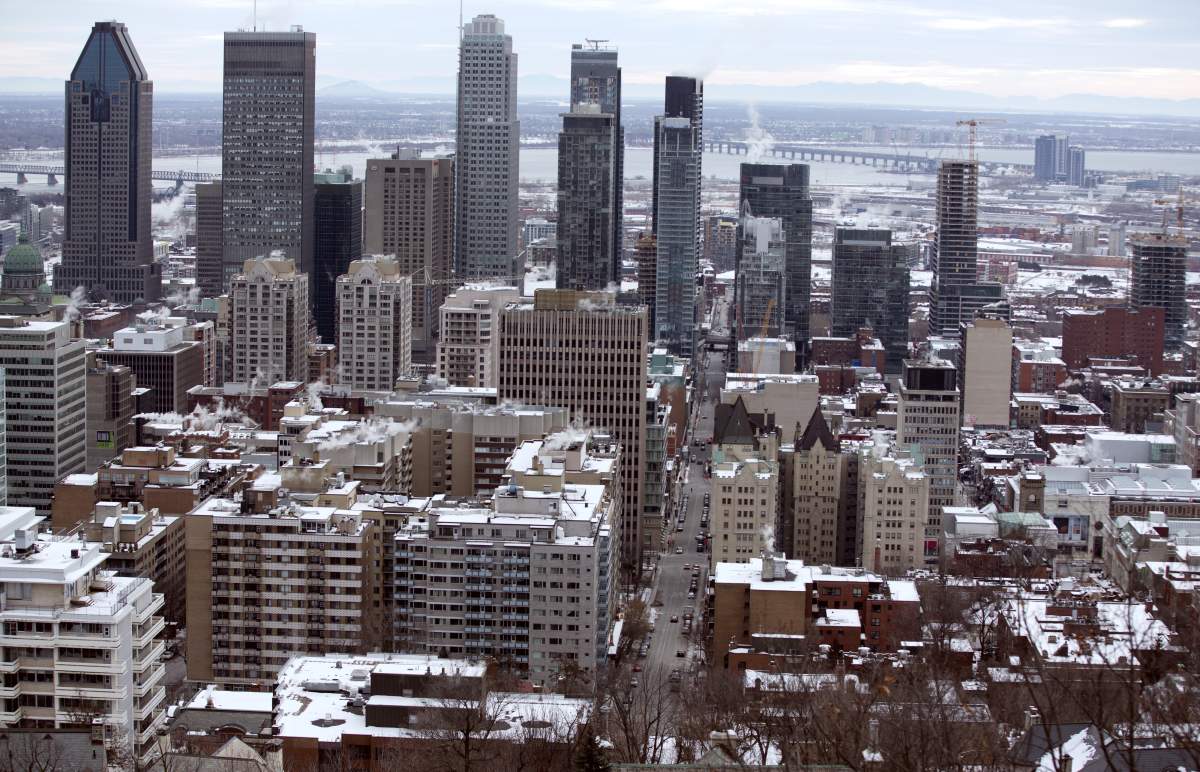After Vancouver and Toronto, is the real estate craze about to spread to other parts of the country?

It’s still early days, but according to RBC, Ottawa and Montreal may be starting to show some of the familiar signs.
“Some affordability tensions may be emerging in Ottawa and, to a lesser extent, Montreal,” reads the bank’s latest report on housing affordability.
RBC measures affordability as the share of pre-tax income that a household with middling earnings would have to devote to mortgage costs, property taxes and utilities based on local average housing prices.
That share is a mind-boggling 88 per cent of income in the Vancouver area and an only slightly better 78 per cent in Toronto.
Things aren’t nearly as bad in Ottawa and Montreal yet, with housing costs taking up 39 per cent and 43 per cent of local median incomes respectively. But that may be part of the problem, as both cities appear to be attracting buyers who might have, until recently, had their eyes only on Toronto and Vancouver.
Ottawa has been seeing “a surge of demand from buyers employed in Toronto who have the ability to work remotely, full or part-time,” Royal LePage broker Hanna Browne recently noted in the company’s 2018 real estate market outlook report.
READ MORE: Here’s what the new mortgage rules will do to home prices in 2018: Royal LePage

Get weekly money news
And Montreal is expected to become a magnet for foreign house hunters, especially from Asia, “as new direct travel routes and the foreign buyer taxes implemented in Toronto and Vancouver make it an increasingly attractive option for overseas buyers,” ReMax recently noted in its 2018 forecast.
READ MORE: There’s so much we still don’t know about foreign homebuyers
Ottawa
The real estate market of the nation’s capital may have seen the strongest year ever in 2017, noted RBC. Prices haven’t been rising this fast in seven years and sellers are now “calling the shots,” reads the report.
Government dollars are fuelling brisk hiring, which, coupled with a steady flow of housing market refugees from Toronto, is increasing demand for local homes.
Housing costs now take up nearly 40 per cent of local median incomes, the highest level since 1995 and well above the city’s long-run average of 35 per cent, noted RBC.
ReMax sees the city’s average residential rising nine per cent this year to an expected $394,000, up from around $360,000 in 2016. And Royal LePage expects prices to keep climbing in 2018, as a strong regional economy keeps buyers coming to a market where homes for sale are becoming scarcer.
As for the incoming mortgage stress test, it will be “quickly absorbed, limiting impacts on both home sales and prices,” according to Royal LePage.
READ MORE: New mortgage rules 2018: A practical guide
Montreal
Thank a roaring economy and record-low unemployment for the strongest real estate market Montreal has seen “in years—if not ever,” writes RBC.
It doesn’t hurt, of course, that the provincial government, eyeing re-election, has been loosening the purse strings.
WATCH: New mortgage rules mean you might have to buy a smaller home

The average residential resale likely rose four per cent in 2017, up from $350,000 to an expected $365,000, according to ReMax.
Housing costs are now approaching 45 per cent of median incomes, up from a long-term average of below 40 per cent, according to RBC.
But ReMax believes Montreal will continue to be a seller’s market next year, despite tighter mortgage rules and the likelihood of rising interest rates.
Indeed, stress tests and marginally more expensive mortgages seem unlikely deterrents for well-heeled foreign buyers snatching up property in Westmount and Ville Mont-Royal.








Comments
Want to discuss? Please read our Commenting Policy first.